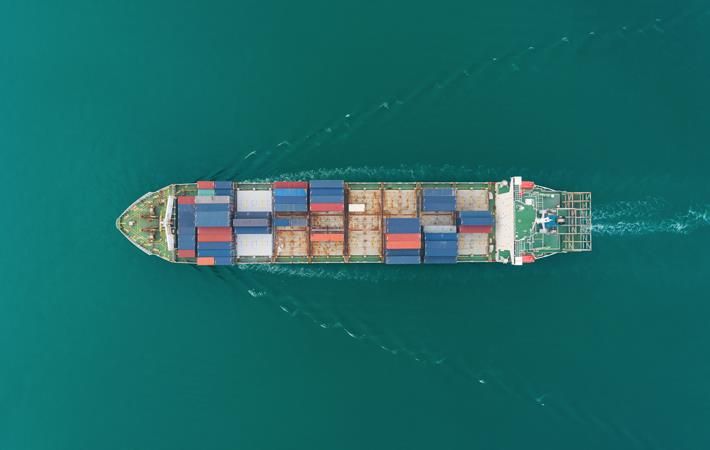Interviews
Global maritime trade loses momentum in 2018: UNCTAD
04 Nov '19
4 min read

Pic: Shutterstock
World maritime trade lost momentum in 2018 as heightened uncertainty, escalating US-China trade tensions and mounting concerns over other trade policy and political crosscurrents, notably a no-deal Brexit, sent waves through global markets, according to the UN Conference on Trade and Development’s (UNCTAD) Review of Maritime Transport 2019.
Volumes in the sector grew by only 2.7 per cent last year, below the historical averages of 3 per cent and 4.1 per cent recorded in 2017, according to the report.
“The dip in maritime trade growth is a result of several trends including a weakening multilateral trading system and growing protectionism,” said UNCTAD secretary general Mukhisa Kituyi.
“It is a warning that national policies can have a negative impact on the maritime trade and development aspirations of all,” he added.
Buffeted by a global economic slowdown, in 2018, seaborne trade also navigated other difficult headwinds such as geopolitical tensions, while preparing for an expected surge in ship fuel costs arising from a new regulation requiring ships to cut their sulphur dioxide emissions.
UNCTAD expects international maritime trade to expand at an average annual growth rate of 3.4 per cent over the 2019–2024 period, driven in particular by growth in containerized, dry bulk and gas cargoes. However, uncertainty remains an overriding theme in the current maritime transport environment, with risks tilted to the downside.
Reflecting slower maritime trade, growth in global port traffic also edged down, with container port traffic increasing by only 4.7 per cent in 2018, from a 6.7 per cent growth rate in 2017.
Similarly, container trade growth weakened. In 2018 volumes only increased by 2.6 per cent, compared with 6 per cent in 2017. This was matched with a sustained delivery of mega container ships, with container fleet supply capacity in 2018 increasing by 6 per cent as compared to 4 per cent in 2017. In an already overly supplied market, these developments further compressed freight rates in 2018.
Despite the setbacks, a milestone was reached, with total seaborne trade volumes amounting to 11 billion tons.
The maritime transport industry also saw a silver lining in an expanding liquefied natural gas (LNG) sector. This came as a result of intensified pressure to promote cleaner energy sources. Bulk carriers, oil tankers and container ships recorded the highest level of ship deliveries, with LNG carriers recording the highest growth rate at 7.25 per cent.
The report warns that while global growth could swing in a positive direction, given some upside factors such as China’s Belt and Road Initiative, and the various trade deals that came into force or are in the pipeline, the balance of risks to the outlook remains poor.
The risks are particularly high for the most vulnerable economies. The report highlights a growing connectivity divide – an increasing difference between the most- and least-connected countries.
At the same time, profound structural trends that started more than a decade ago and have taken hold are slowly transforming the maritime transport landscape. The industry is transitioning away from patterns observed before the global financial and economic downturn hit the world economy.
The sector is also increasingly facing intensified and more frequent natural disasters and climate-related disruptions, which is making climate-risk assessment, adaptation and resilience building for seaports and other coastal transport infrastructure an increasingly urgent priority.
In the face of these new risks, the industry has embraced an accelerated environmental sustainability agenda, with an increased awareness of the impact of global warming, and the imperative of fast-tracking the energy transition towards cleaner fuel sources.
Volumes in the sector grew by only 2.7 per cent last year, below the historical averages of 3 per cent and 4.1 per cent recorded in 2017, according to the report.
“The dip in maritime trade growth is a result of several trends including a weakening multilateral trading system and growing protectionism,” said UNCTAD secretary general Mukhisa Kituyi.
“It is a warning that national policies can have a negative impact on the maritime trade and development aspirations of all,” he added.
Buffeted by a global economic slowdown, in 2018, seaborne trade also navigated other difficult headwinds such as geopolitical tensions, while preparing for an expected surge in ship fuel costs arising from a new regulation requiring ships to cut their sulphur dioxide emissions.
UNCTAD expects international maritime trade to expand at an average annual growth rate of 3.4 per cent over the 2019–2024 period, driven in particular by growth in containerized, dry bulk and gas cargoes. However, uncertainty remains an overriding theme in the current maritime transport environment, with risks tilted to the downside.
Reflecting slower maritime trade, growth in global port traffic also edged down, with container port traffic increasing by only 4.7 per cent in 2018, from a 6.7 per cent growth rate in 2017.
Similarly, container trade growth weakened. In 2018 volumes only increased by 2.6 per cent, compared with 6 per cent in 2017. This was matched with a sustained delivery of mega container ships, with container fleet supply capacity in 2018 increasing by 6 per cent as compared to 4 per cent in 2017. In an already overly supplied market, these developments further compressed freight rates in 2018.
Despite the setbacks, a milestone was reached, with total seaborne trade volumes amounting to 11 billion tons.
The maritime transport industry also saw a silver lining in an expanding liquefied natural gas (LNG) sector. This came as a result of intensified pressure to promote cleaner energy sources. Bulk carriers, oil tankers and container ships recorded the highest level of ship deliveries, with LNG carriers recording the highest growth rate at 7.25 per cent.
The report warns that while global growth could swing in a positive direction, given some upside factors such as China’s Belt and Road Initiative, and the various trade deals that came into force or are in the pipeline, the balance of risks to the outlook remains poor.
The risks are particularly high for the most vulnerable economies. The report highlights a growing connectivity divide – an increasing difference between the most- and least-connected countries.
At the same time, profound structural trends that started more than a decade ago and have taken hold are slowly transforming the maritime transport landscape. The industry is transitioning away from patterns observed before the global financial and economic downturn hit the world economy.
The sector is also increasingly facing intensified and more frequent natural disasters and climate-related disruptions, which is making climate-risk assessment, adaptation and resilience building for seaports and other coastal transport infrastructure an increasingly urgent priority.
In the face of these new risks, the industry has embraced an accelerated environmental sustainability agenda, with an increased awareness of the impact of global warming, and the imperative of fast-tracking the energy transition towards cleaner fuel sources.
Fibre2Fashion News Desk (DS)
Popular News
Leave your Comments
Editor’s Pick
Therese Premler-Andersson
Textile Machinery Association of Sweden (TMAS)
































-Ltd..jpg?tr=w-120,h-60,c-at_max,cm-pad_resize,bg-ffffff)





.jpg?tr=w-120,h-60,c-at_max,cm-pad_resize,bg-ffffff)
.jpg?tr=w-120,h-60,c-at_max,cm-pad_resize,bg-ffffff)






